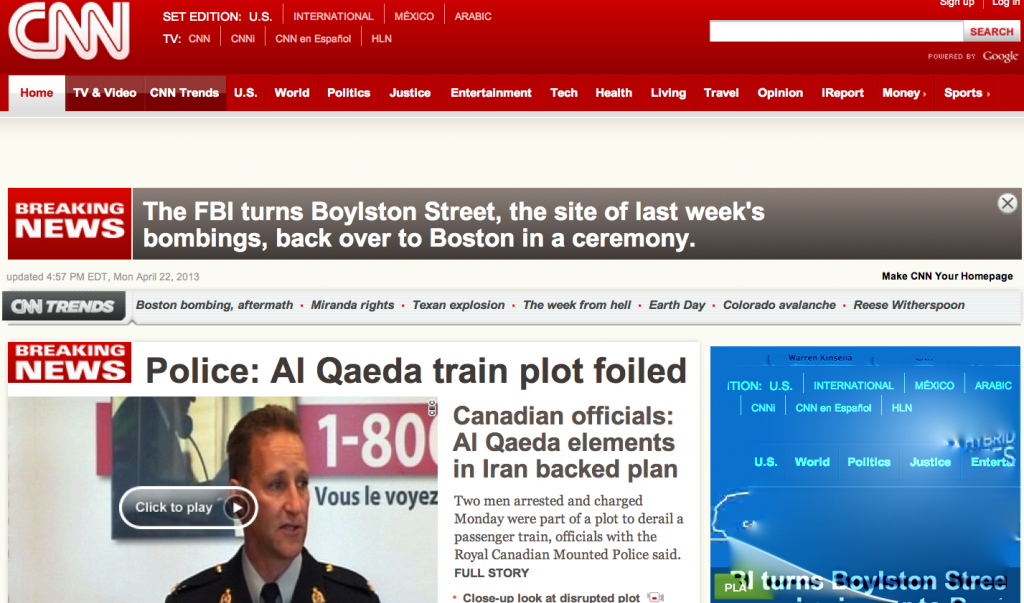The JT spot: open thread
I actually watched CBC News last night, just to see the shiny new Justin Trudeau spot. All I got was about five seconds of it, and then Chris Hall and Peter Mansbridge telling me what to think about it. That made me turn off the TV.
Here, then, as a public service, is the ad in its entirety. Decide for yourself what you think! To Hell with Hall!
What does Your Humble Narrator think about it, you ask? Well, it ain’t bad, but it ain’t epic, either. Here, again, are Warren’s Free Tips On How To Watch A Political Ad:
- Watch it with the sound off. TV is a visual medium. When you force yourself to focus on only the pictures, Trudeau looks pretty good. But when he’s tie-less, perched on the corner of the desk, and in the classroom setting, does he look however like a Prime Minister? Not yet. More like a guy selling Registered Education Savings Plans.
- Watch it with your emotional brain, not your logical brain. As I wrote in Fight The Right, political decisions are mostly emotional. Reason – if it plays any role at all – plays a supporting role. The emotional response the ad evokes is neutral: it doesn’t make you dislike Harper, necessarily, or like Trudeau. If anything, my emotional response was: he looks young for his age. That may or may not be a good thing. For Obama 2008, it was good.
- Watch it for the one thing it wants to tell you. This is where I was a bit unclear. Is its purpose to diss the Conservatives? To promote Trudeau? To raise money? To celebrate the continued use of Video Cassette Recorders in 2013? You got me. If the objective was introduce Trudeau to the public as Liberal leader, it does that. But the staccato, sentence-fragmenty delivery was off-putting, for me.
Anyway. That, as I say, is just my take. Take it or leave it. Your reaction is more important, because you guys are normal, and I’m a political weirdo.
Comments are open, so fire away.




